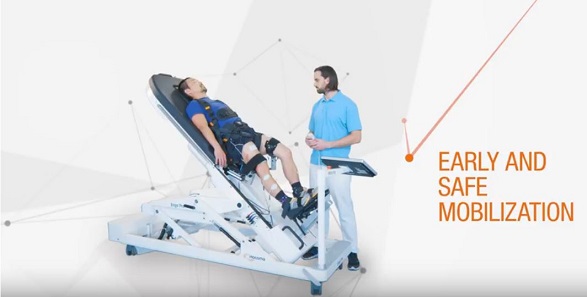Hocoma Erigo
The mobilisation and verticalisation of immobile patients can be very challenging, and can be unsafe for patients and therapists alike. Hocoma’s Erigo allows early and safe mobilisation, even in acute care.
Training with the Erigo is suitable for neurological, trauma, cardiovascular, and post-surgery patients. Neurological disorders include (but are not limited to):
- Stroke
- Spinal cord injury (SCI)
- Traumatic brain injury (TBI)
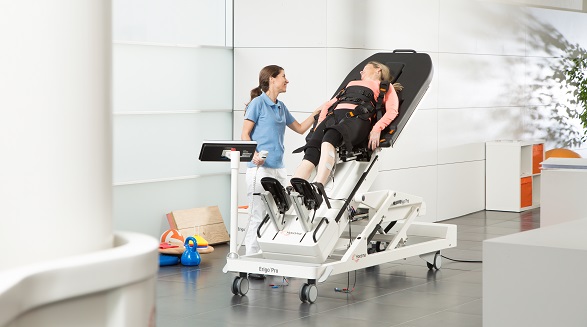
Safe robotic verticalisation
The Erigo combines gradual verticalisation with robotic movement therapy, which ensures the safety of your patients while they are in an upright position. The robotic leg movement and the cyclic leg loading conducted by the Erigo is critical for the stimulation of the central nervous system. This means that your patients can be trained intensively and safely from a very early stage of rehabilitation.
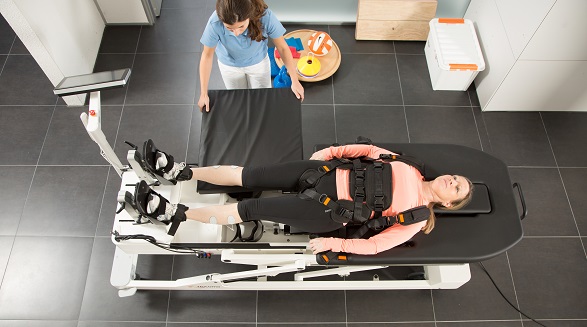
Muscle activation
The Erigo‘s robotic leg movement leads to muscle activation, improved muscle pump function, and venous return.
This ultimately results in improved cardiovascular stability, and patients who have been tilted with the Erigo generally don’t suffer a drop in blood pressure and therefore have a reduced tendency to collapse. Patients can tolerate the upright position much better than patients treated on a traditional tilt table.
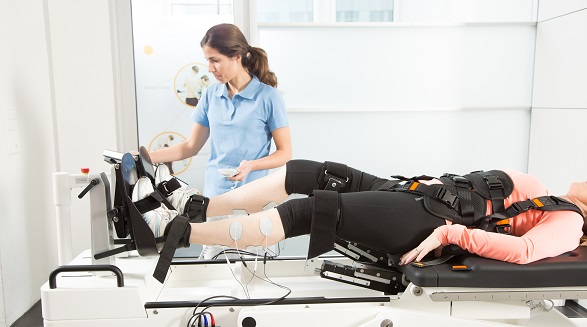
Functional Electrical Stimulation
The Erigo Functional Electrical Stimulation (FES) further increases the afferent stimulation of patients, and thereby their cardiovascular stability, during early verticalisation. The electrical activation of key leg muscles supports the increase of blood flow in the patients’ lower limbs. This leads to improved venous return which helps to maintain stroke volume and blood pressure. Furthermore, therapy with the Erigo FES improves cerebral blood flow and muscle strength in lower extremities leading to recovery of motor function. The Erigo‘s Functional Electrical Stimulation is fully synchronised with the robotic leg movements.
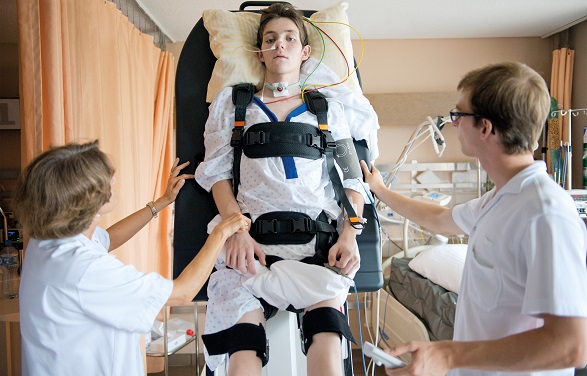
Acute care
Early mobilisation supports the recovery of patients as well as having a positive effect on the cost-effectiveness of treatment by reducing the amount of time spent in acute care and subsequent rehabilitation clinics.
It has been shown that early physical therapy, using equipment such as the Erigo, reduces the amount of time spent in intensive care, the length of time spent in hospital, and therefore the overall therapy costs. The Erigo also helps in reducing medical complications associated with immobility, and relieves the strain put on the therapist. This allows the therapist to focus fully on therapy, using easy-to-use technology to increase the efficiency of rehabilitation.
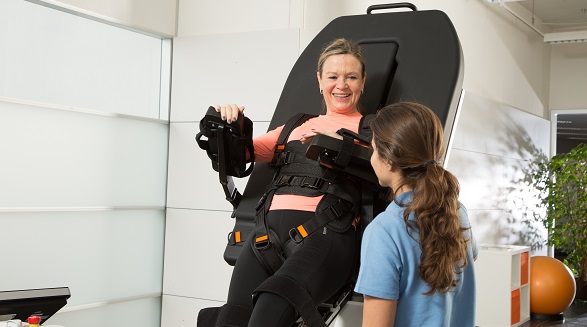
Clinical use
The Erigo is highly mobile and set on wheels for easy transport between rooms. It can easily be adjusted to align with patient bed for supine transfer or even transfer with a patient lift.
It offers safe training with direct patient contact and interaction. Hospital equipment such as patient monitoring systems can be safely attached to the hand rails. The Erigo also features an intuitive user interface on a touch screen, electronic adjustment of leg length, as well as a flexible one-size-fits-all patient harness system.
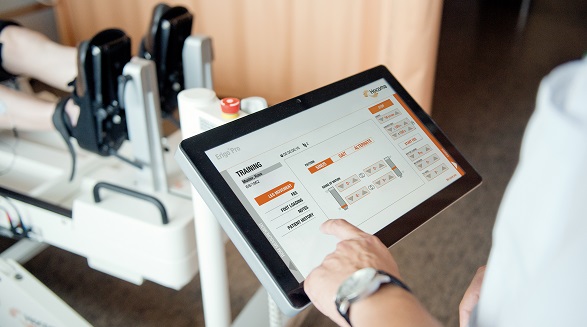
Clinical evidence and reports
Visit knowledge.hocoma.com for numerous studies and research conducted with the Erigo and all of Hocoma‘s products.
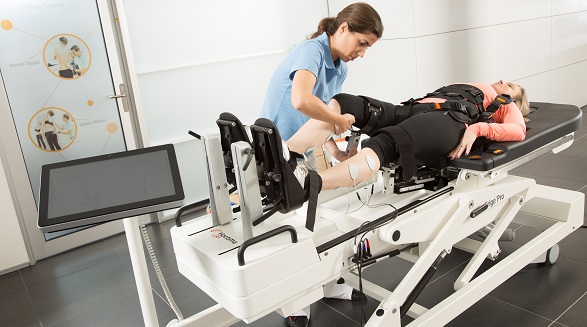
Solution categories
- Body Weight Support
- Clinical
- Portable
- Rehabilitation
The Hocoma total solution: the entire therapy continuum
From acute inpatient care to outpatient rehabilitation.
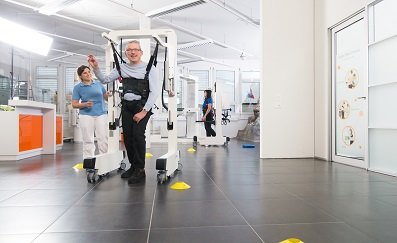
Andago
The Andago is the world’s first free-moving mobile gait robot, combined with a body weight support system.
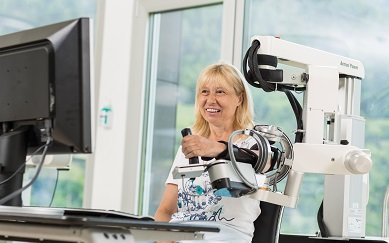
Armeo
The Armeo range enables patients to practise and repeat movements for upper limb rehabilitation. Including the ArmeoSpring and ArmeoPower.
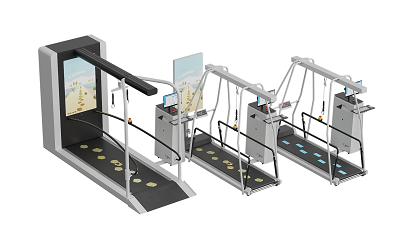
C-Mill by Motek
The C-Mill is an augmented and virtual reality instrumented single belt treadmill, used for the evaluation and training of impaired gait and balance.
HocoNet®
The all-new software platform, connecting all of Hocoma‘s portfolio across the entire continuum of care.
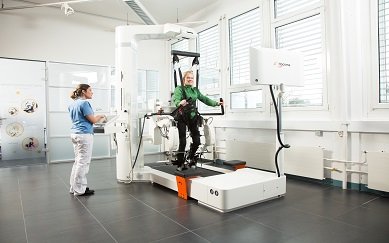
Lokomat
Relearn how to walk from the beginning with the Lokomat, a robotic-assisted therapy solution that enables intensive gait training.

